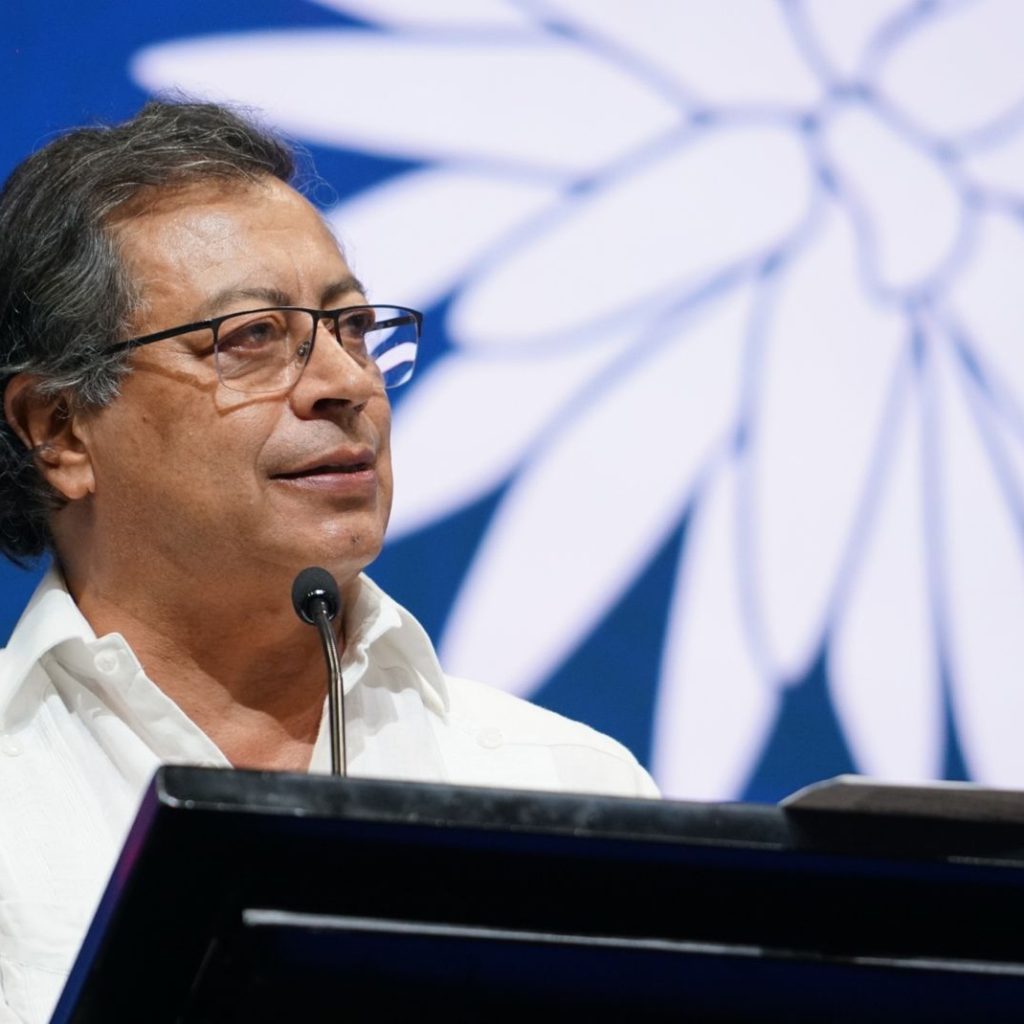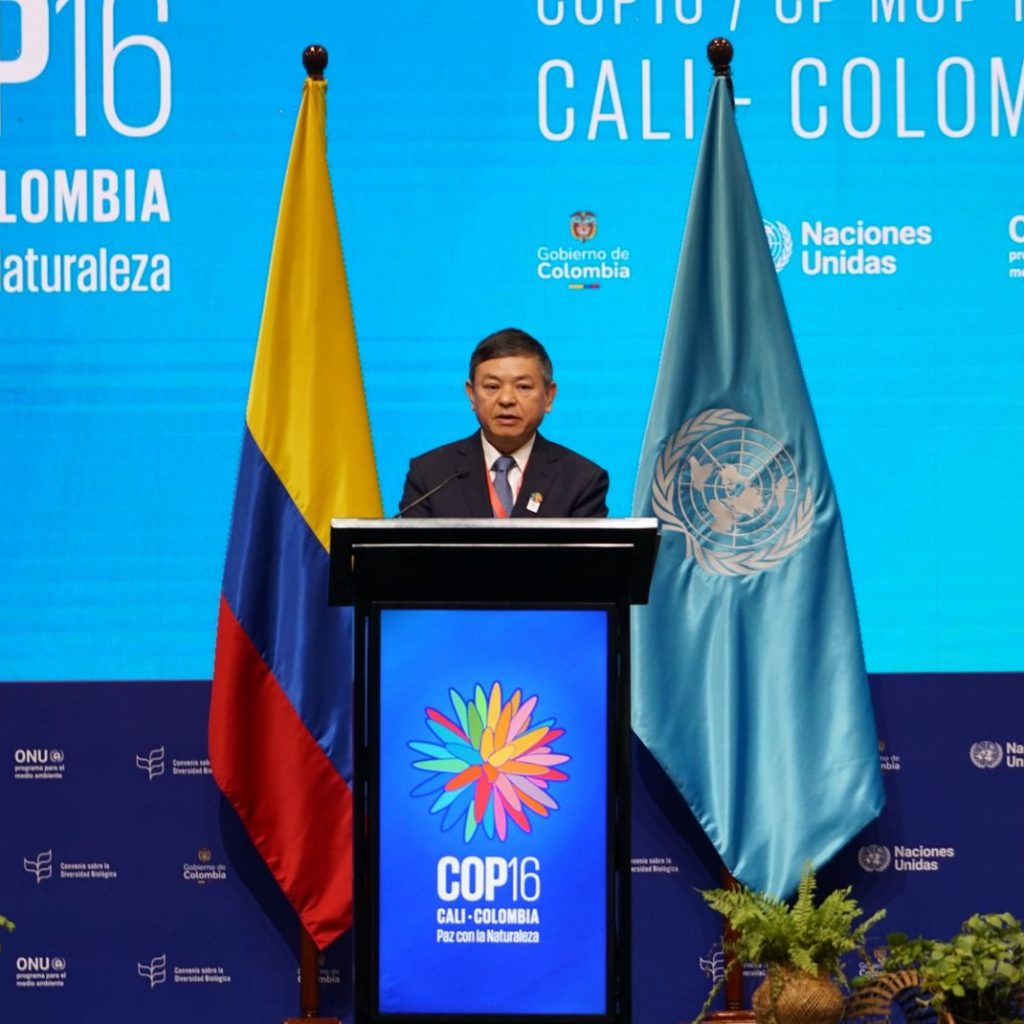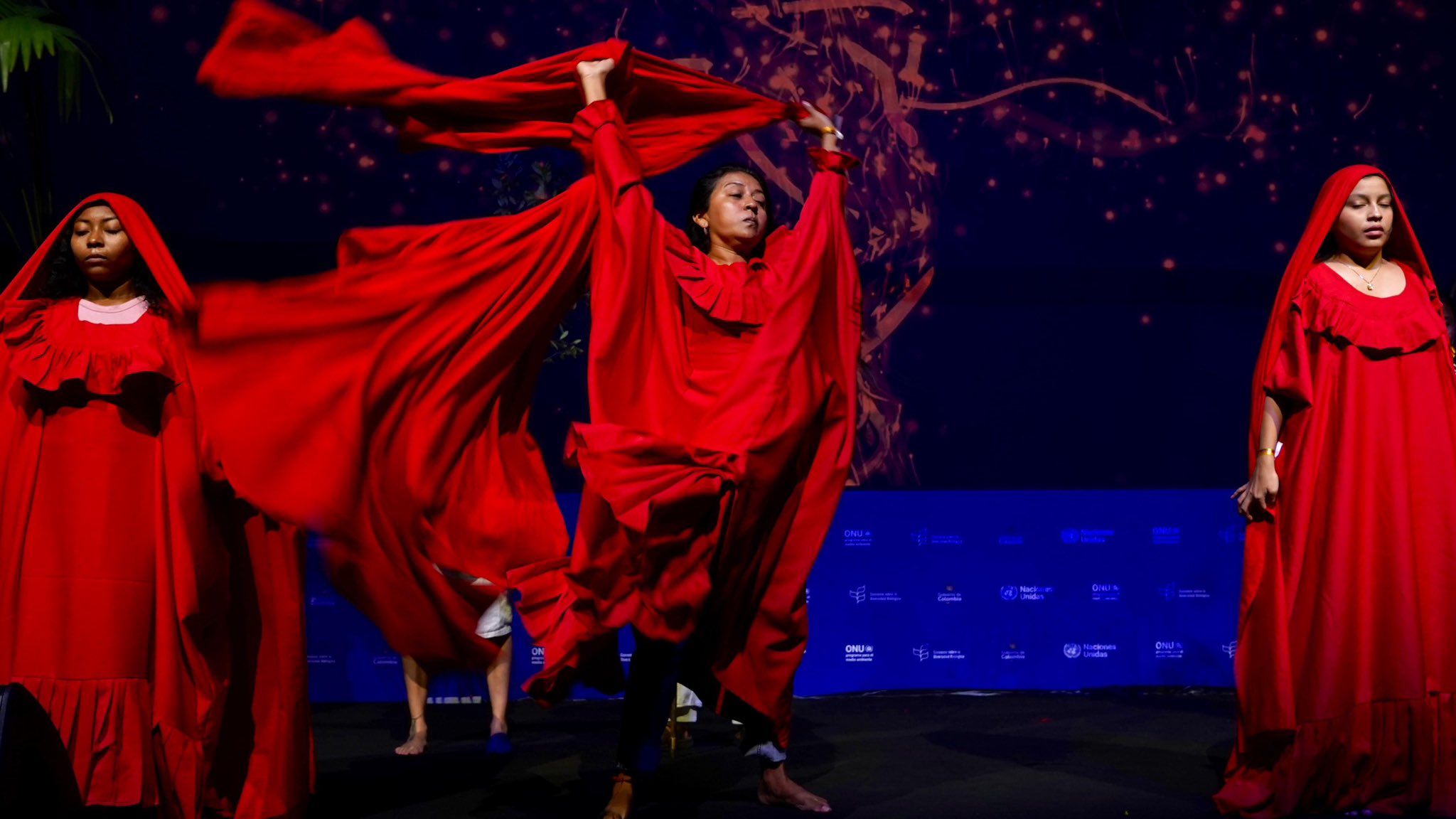CALI: With advance protection of the planet’s biodiversity at its heart Colombia hosted on Sunday a crucial ‘Conference for Biodiversity (CBD) COP16’, with journalists and opinion makers from more than 190 countries attending it.
This year’s theme for the COP is ‘Peace with Nature.’ The cultural opening ceremony showcased the close relationship between humans and nature, with Indigenous peoples, Afro-descendant communities, and rural farmers as key protagonists. The Forestry Wing of the Federal Ministry of Climate Change (MoCC) represents Pakistan at the conference.
In the opening ceremony of COP16, Colombia called on the world to make peace with nature. Over the next 12 days, until November 1, Colombia will host the Conference of the Parties, bringing together more than 190 countries to address the world’s most pressing challenges in biodiversity protection.
With a record attendance of more than 21,000 pre-registered delegates, COP16 has become the largest meeting in the history of this biodiversity summit, attracting representatives from nearly every country on the planet.

During his opening speech, Colombia’s President Gustavo Petro stressed the need to reduce debt risk for third-world countries. “It is essential today to exchange debt for climate action. (Economic) risk cannot be the basis for measuring interest rates or determining loans,” he said. “If capital funds and pension funds in wealthier countries base their profitability on the economies of poor countries, they will leave humanity without the tools to overcome the climate crisis.”
He said that only by swapping country risk for climate action can we finance the Marshall Plan that will halt the global climate crisis: decarbonising the entire economy. Charging a risk premium to those absorbing the CO2 emitted by the planet’s ultra-wealthy is truly a deadly contradiction,” he added.
He said that the world must immediately “come away from the neoliberal era—neoliberal in all its forms. This is necessary for life and humanity to continue. He stressed the need to regulate the market and have strong public powers that serve humanity. “We need to change how we run finances of this world and that is this forum’s slogan.”
He said that life on the planet could not be saved through bankable projects, which means projects linked to the rate of interest and projects that provide earnings and profits. The risky economies, he said, are those that emit the most carbon dioxide using fossil fuels, oil, and gas, and these are powerful regimes of the United States, China, and Europe. He said that the gasses they emit are absorbed through our jungle and forest through our biodiversity.
Secretary General of the United Nations (UN) António Guterres said that the Kunming-Montreal Global Biodiversity Framework (KM GBF) is grounded in a clear truth for humanity to survive and nature must flourish.
At COP15 in 2022, the KM GBF was formed, envisioning a world in harmony with nature where “by 2050, biodiversity is valued, conserved, restored and wisely used, maintaining ecosystem services, sustaining a healthy planet and delivering benefits essential for all people.” For this, the framework has four goals to be achieved by 2050 and 23 action-oriented global targets to be achieved by 2030.
Guterres said the framework promises to reset relations with the earth and its ecosystem. However, he stressed converting framework plans into action. The nations, he said, must end COP16 with significant financial investment in the Global Biodiversity Framework Funds (GBFF) and a commitment to mobilizing other sources of public and private finance, and those profiting from nature must contribute to restoration.
At COP15, governments agreed to establish a new international biodiversity fund, GBFF, under the Global Environmental Facility.
Speaking on Digital sequence information on genetic resources, he said the developing countries are being plundered. With the digitized DNA from biodiversity, there have been scientific discoveries and economic growth, but developing countries only gain a little from these advances despite being home to extraordinary richness.
He said that when countries share genetic information, they must share its benefits equitably and engage all of society, including Indigenous communities. As the world’s great guardians of biodiversity, he said, they must be at the heart of biodiversity action at every level.

The Minister of Ecology and Environment China, Huang Runqiu, who was the president of the last COP15, said that the earth’s ecosystem faces unprecedented damage, with 100 million hectares of tropical forest lost, over 85 percent of wetlands lost, and 25 percent of species at risk of extinction.
He said KMBF was announced during the first phase of COP15, and China invested Yuan 1.5 bn to set it up. In May, he said, China allocated Yuan 50 million in funding this year.
During the ceremony, attendees were treated to the cultural performance ‘From Water and Earth,’ produced by Colombia’s Ministry of Cultures, Arts, and Knowledge’s National Arts Centre. The performance evoked the deep connection between humans and natural elements, with Indigenous peoples, Afro-descendant communities, and rural farmers as central figures. A sound performance titled ‘Peace with Nature’ also encouraged reflection on the importance of peace and environmental protection.
Header image by CBD COP16
Subedited by Hunain Ameen
This story was produced as part of the 2024 CBD COP16 Fellowship organized by Internews’ Earth Journalism Network.



